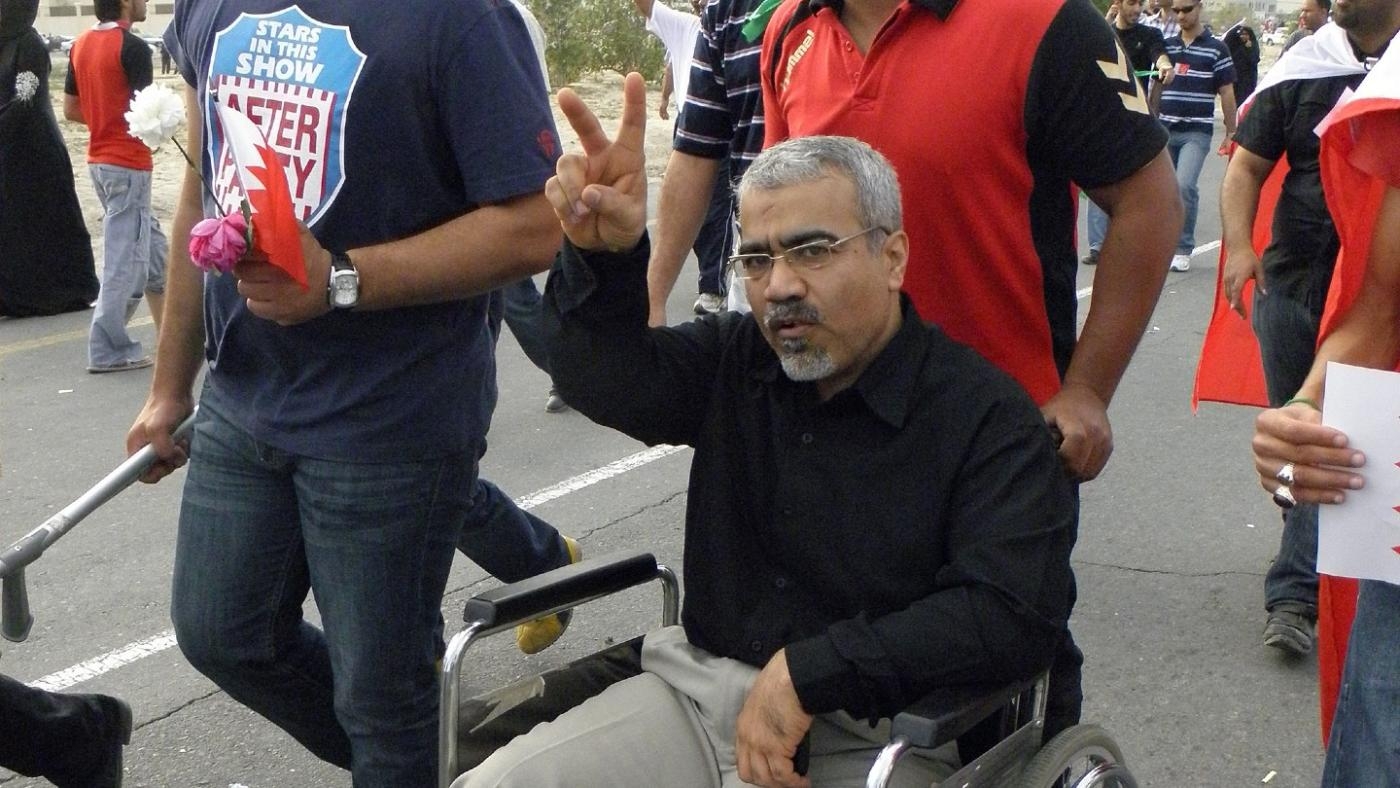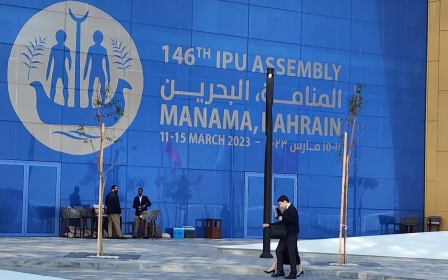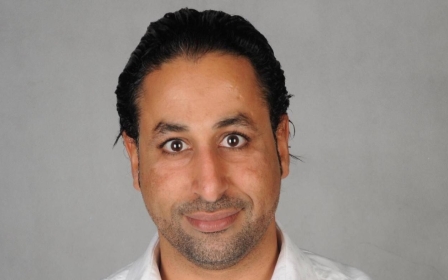UN watchdog urges Bahrain to release academic on hunger strike

The United Nations Working Group on Arbitrary Detention has urged Bahrain to release a leading academic who has been on hunger strike without solid food for 700 days.
Abduljalil al-Singace, director and spokesperson of the Human Rights Bureau of the Haq Movement for Civil Liberties and Democracy, has been in jail since 2011, when he was sentenced to life in prison on terrorism allegations.
He began a hunger strike in July 2021 after the confiscation of his book on Bahraini dialects of Arabic - written by hand over four years - from his cell in Jaw prison, in eastern Bahrain.
In a report released on 25 May by a working group from the UN Human Rights Council, experts said Singace had presented a “credible” case of torture at the hands of the Bahraini government.
The report also said that Singace was subject to enforced disappearance. He and his family were threatened at gunpoint and were not presented with a warrant or informed of the reason for his arrest.
New MEE newsletter: Jerusalem Dispatch
Sign up to get the latest insights and analysis on Israel-Palestine, alongside Turkey Unpacked and other MEE newsletters
“Taking into account all the circumstances of the case, the appropriate remedy would be to release Mr. Al-Singace and accord him an enforceable right to compensation and other reparations, in accordance with international law,” the report said.
Husain Abdulla, the executive director of Americans for Democracy & Human Rights in Bahrain (ADHRB), said the report reaffirmed Singace had been imprisoned for over a decade on “a sham conviction resulting from sham charges and a sham trial”.
'Shred of decency'
“If the Bahraini government has any respect for the international community at all - or even if it just has any shred of common decency - it will release Dr al-Singace immediately,” he added.
Bahrain’s Sunni ruling family governs a majority Shia population. It was the only Gulf Arab state to experience major unrest during the 2011 Arab Spring protest movement, with citizens demanding greater political freedoms and equal rights regardless of religious identity.
Since the 2011 uprisings, the Bahraini monarchy launched a comprehensive crackdown on opposition groups and human rights activists, arresting hundreds in the process.
Singace was among 13 anti-government protesters who were arrested and convicted on charges that included "setting up terror groups to topple the regime”.
Since the uprising, Bahrain has outlawed opposition parties and arrested dozens of activists, sparking international criticism. In May of this year, a senior Shia imam who called for the release of political prisoners in the kingdom was arrested.
Middle East Eye delivers independent and unrivalled coverage and analysis of the Middle East, North Africa and beyond. To learn more about republishing this content and the associated fees, please fill out this form. More about MEE can be found here.




